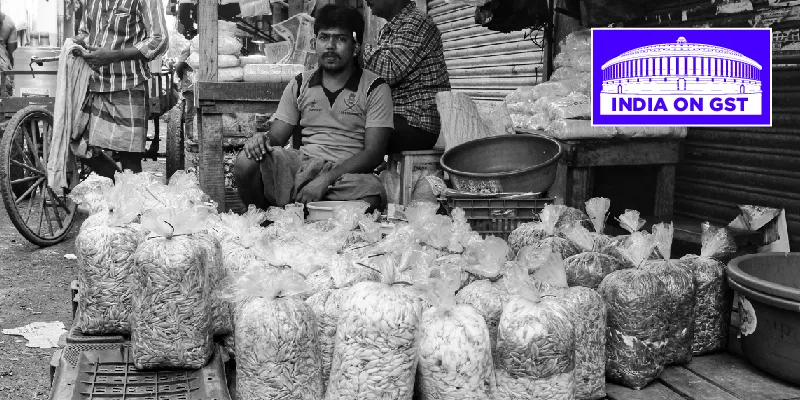GST aims to please businesses that work with the farming community
The government has spent a lot of time figuring out whom to milk and whom to nurture and shield from taxes by way of the Goods and Services Tax (GST).
For instance, it has kept the unpackaged and unbranded meat and fresh milk industry free from taxes. Any income arising from the procurement or sale of fresh fruits and vegetables is also exempt from taxes. The idea here is to keep the common man happy.
To boot, all items used in religious rituals and worship, including 'prasadam', have been placed in the zero tax slab in the GST. So the government has taken great care in pleasing communities.

Companies that supply unprocessed products such as coffee bean (not roasted), unprocessed green leaves of tea, fresh ginger, unprocessed fresh turmeric will not attract any tax. So plantations in Karnataka, north-eastern India and Tamil Nadu will be really happy. Turmeric producing regions such as Erode too will have smiling SMBs, which supply turmeric to processing plants.
Similarly, unbranded and unprocessed cereals like wheat, meslin, rye, barley, oats, maize, rice, millet along with any generic unbranded flour–aata, maida, besan–are exempt from taxes. This is a sort of a populist move considering the fact that there are traders working in mandis or agri-commodity collection and marketing centres.
As of now, more than 450 mandis have been linked electronically and the government wants to ensure fair prices to farmers.
Again, any startup working with farmers, like Crofarm or Aibono, will not have to pay GST and will incur costs only in the form of logistics for inter-state movement of goods. There are over 20 agri-tech and agri-non tech startups that source unpackaged commodities. They will surely benefit from the implementation of the GST going forward.







